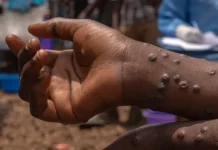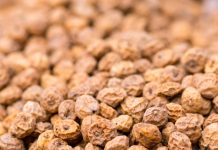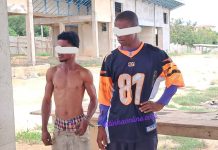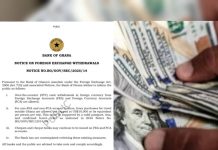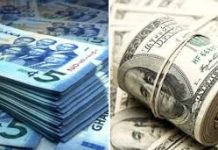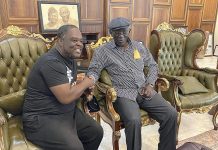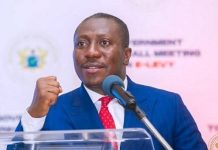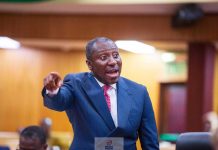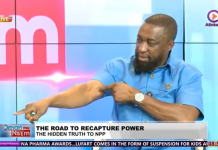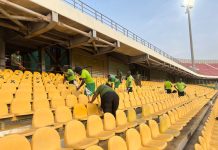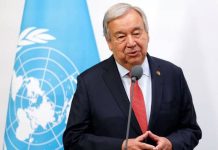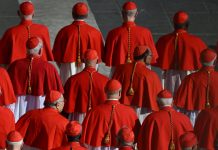British Prime Minister Theresa May expelled 23 Russian diplomats on Wednesday over the poisoning of a former Russian spy on British soil, raising tensions between the two countries to a level not seen since the heights of the Cold War as she vowed to crack down on Russian spies, corrupt elites and ill-gotten wealth in Britain.
Her statement to Parliament came after Moscow rejected a British deadline for Russia to explain itself over this month’s attack on the former spy, Sergei V. Skripal, and his daughter.
The two countries have engaged in a worsening clash in recent days, with Britain widening an investigation into the incident and courting friends and allies to increase pressure on Russia, while Moscow has threatened to retaliate over any punitive action.
The strident remarks from the British prime minister were a marked departure from the norm for a leader who has faced a litany of domestic and international issues. Mrs. May’s government is consumed with Britain’s withdrawal from the European Union, a complex negotiation that it appears to be struggling with, and its closest international ally, the United States, is led by a president who has appeared reluctant to openly criticize Russia.
“This represents an unlawful use of force by the Russian state against the United Kingdom,” Mrs. May said in an address to the House of Commons. “It must therefore be met with a full and robust response.”
She said Britain would suspend all high-level contacts with Russia, and would expel 23 Russian diplomats, who were given one week to leave. She described it as the biggest expulsion in more than 30 years, harkening back to a period in which Britain and the United States faced off against the Soviet Union.
The prime minister also said the government had agreed on new powers to crack down on the activities of foreign intelligence agents in Britain, that there was no place for “serious criminals and corrupt elites” in the country, and that an invitation for Foreign Minister Sergei V. Lavrov of Russia to visit had been withdrawn.
She added that no British ministers or royals would attend the World Cup in Russia this summer, that Britain would “increase checks on private flights, customs and freight,” and that it would “freeze Russian state assets wherever we have the evidence that they may be used to threaten the life or property of U.K. nationals or residents.”
“They have treated the use of a military-grade nerve agent in Europe with sarcasm, contempt and defiance,” Mrs. May said of Russia. “Their response has demonstrated complete disdain for the gravity of these events. They have provided no credible explanation.”
Experts have described a number of tougher measures Britain could also take, like seizing any assets of questionable provenance belonging to Russians who have invested and settled in the country, changing laws that made it possible to hide the true ownership of assets, and calling on the international community to tighten economic restrictions on Russia. Britain’s broadcast regulator has also hinted that it could revoke the license of RT, the Kremlin-controlled English-language news channel.
Since Monday, when Mrs. May said that “it is highly likely that Russia was responsible” for the nerve-agent attack on Mr. Skripal and his daughter, Yulia, in Salisbury, England, this month, President Vladimir V. Putin’s government has made a series of statements denying any involvement and threatening dire consequences for Britain if it acts against Russia.
On Wednesday, the Russian embassy in London said the British “hostile action” was “totally unacceptable, unjustified and shortsighted.”
Earlier, Mr. Lavrov had said Britain was “acting out political drama” rather than investigating the matter seriously.
“Russia could not have had any motives” for the attack, he said, “but those who would like to continue a Russophobic campaign in absolutely all areas of human activities” could have had such motives.
Moscow has demanded that it be part of a joint investigation into the attack on the Skripals, along with the Organization for the Prohibition of Chemical Weapons, and that Britain turn over a sample of the nerve agent. Mrs. May identified the chemical as a Novichok, a class of extremely deadly nerve agents developed by the Soviet Union in the 1970s and 1980s. Britain was sending samples of the toxin to the chemical weapons organization for verification, the British prime minister said on Wednesday.
The country has tried to marshal support from international organizations, an effort potentially complicated by Britain’s impending exit from the European Union, disputes within NATO, and the reluctance of President Trump to denounce Mr. Putin. Despite those tensions, several of Britain’s European allies have been quick to express solidarity over the attack on the Skripals, who remain hospitalized in critical condition.
Donald Tusk, president of the European Council, wrote on Twitter on Wednesday that he stood with Mrs. May on what he called a “brutal attack inspired, most likely, by Moscow,” and said he was prepared to put the matter on the agenda for the council’s meeting next week.
Also on Wednesday, Britain called for an urgent meeting of the United Nations Security Council to discuss the attack, and delivered a statement to the United Nations Human Rights Council in Geneva, decrying Russian aggression in Ukraine and Georgia, the country’s involvement in the Syrian civil war, and civil rights abuses within Russia, as well as the nerve agent attack.
Mr. Skripal, a former Russian military intelligence officer, was imprisoned in 2006 for selling secrets to the British. In 2010, he was sent to Britain as part of a spy swap.
The use of an exotic poison in an attempt on his life has echoes of the assassination in 2006 of Alexander Litvinenko, a former Russian agent and vocal critic of Mr. Putin, who was poisoned in London with a radioactive isotope. A British investigation concluded that the killing was not only carried out by Russian agents, but was probably approved by Mr. Putin.
The attack on the Skripals has prompted the British government to say that it will re-examine other suspicious deaths of Putin foes in Britain, which critics say the government has not pursued seriously enough.
Mrs. May’s remarks came as the investigation into the attack in Salisbury continued to widen, with the police cordoning off more sites that might have been contaminated, and anxiety in that city remained high. Hundreds of people who might have been exposed have been told to thoroughly wash their clothes, phones, glasses and anything else that might be carrying minute traces of the chemical.
“We are trying to carry on as normal, but it’s hard when the police keep tarping up new parts of the city,” said Adrian Mendes, an employee of a local fish-and-chip shop. “It makes you think, what else could be contaminated? It makes you want to stay away.”
Tuesday was a market day in the city’s picturesque central square, but even with the sun shining, stalls that would usually be bustling stood empty.
“I’ve never seen it this quiet,” said Fiona Dawson, who works at a jewelry stall. “All you hear now is the military helicopters hovering above.”
Several residents claimed that swans and ducks that passed police cordons on the Avon River had been put down to prevent the spread of contamination. The police did not immediately respond to a request for confirmation.
Local merchants were visibly worried about the long-term impact on business after Neil Basu, chief of the counterterrorism police, announced on Tuesday that the investigation could take many weeks.
Some shops put up signs trying to reassure people. “Business is open,” read one. “Nerve-agent-free products,” read another, on an open vegetable stand, which was later taken down after other stall owners complained that it was putting customers off.
New York Post


